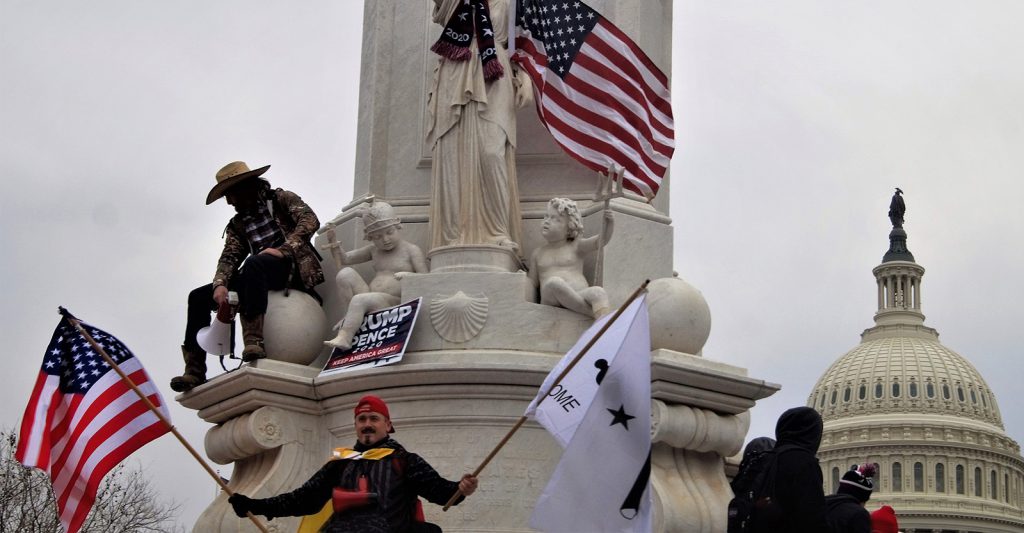Observers were quick to call the events on 8 January in Brazil a coup attempt. But Jonathan Powell and Salah Ben Hammou caution against conflating coup advocacy with coup attempts. Authoritarianism scholars should also note that usage of the term 'coup' has varied through history
Comparisons between 8 January 2023 in Brazil (J8) and 6 January 2021 in the United States (J6) sparked debate among observers about whether these events should be labelled 'coups'. In authoritarianism literature, popular resistance to coup attempts is studied in far more detail than popular support. Civilians may participate in military coups, back military-based incumbents, or elect military-affiliated political parties. Civilians can also advocate for military interventions, or attempt to provoke coups through violence and storming political buildings. But instances of coup advocacy themselves are not attempted coups. Precise terminology for anti-democratic events falling short of coup attempts is just as important to the study of regime types as manifest coup attempts.
On 8 January 2023, thousands of supporters of former Brazilian president Jair Bolsonaro attacked the National Congress, the Supreme Federal Court, and the Presidential Palace. Their aim was to oust the recently inaugurated President Lula da Silva. The attack was the climax of the anti-Lula push and, though dramatic, it eventually failed. Security forces pushed the assailants back, and made more than 400 arrests.

Weeks before, during the 2022 elections, Bolsonaristas had claimed widespread fraud. They camped around military barracks, and called for military intervention against Lula. Bolsonaro supporters also swarmed outside military headquarters, including when Lula’s victory was verified, and publicly demanded that military officers intervene. Several demonstrators attempted to 'provoke an intervention of armed forces' with explosives. Ultimately, they staged their own attack while continuing to promote a military intervention. The attack’s objective was coup advocacy: creating a situation chaotic enough to force soldiers to remove Lula.
Both J8 and J6 were preceded by claims of a 'stolen' election, and both saw the supporters of electoral losers storm the centres of power
Observers quickly drew parallels with the insurrection on 6 January 2021 in Washington DC. Both events were preceded by claims of a 'stolen' election. Both saw the supporters of electoral losers storm the centres of power. Other similarities include the initial slow response from law enforcement, and widely circulated photos that falsely depicted a Brazilian equivalent of J6’s infamous 'Q Anon Shaman.'
Prominent pro-Trump individuals like former National Security Advisor Michael Flynn floated the idea of deploying the military to battleground states and forcing 'reruns' of the election. Others advocated instituting martial law following the chaotic insurrection. One regime insider even suggested that Trump specifically 'intended to incite an insurrection as a pretext' for martial law.

In a recent International Studies Review forum, we found that use of the phrase 'coup d’état' has varied through history, often reflecting the politics of different periods. In the eighteenth century, coup referred to the actions 'of princes' in monarchy-rich Europe. But the prevalence of incumbents being removed by their militaries saw Cold-War era scholars such as Samuel Finer emphasise – or even require – participation of the armed forces for an event to earn the coup label.
Colloquially, we refer to events such as J6 and J8 as 'coups'. Yet important aspects of both events distinguish them from what contemporary scholarship considers coup attempts. For starters, definitions today require that an incumbent is the target of such actions. This makes J8 closer to a coup attempt than J6 because Lula formally held power. Presumptive leaders, or President-elect in Biden's case, are distinct because they have no authority to preserve the transition. And while an incumbent will be clearly committed to mobilising resources to present their own overthrow, they could do the opposite when confronted with impending exit.
Modern definitions of 'coup' require that an incumbent is the target. They also require the overt participation of elements of the state apparatus
Today’s coup definitions also require the overt participation of elements of state apparatus. The events of J8 meet the target requirement. Yet the lack of overt participation by Brazilian armed forces, national police, or civilian officials still complicates attempts to label it a coup.
While such actors may have provided tacit approval or even direct encouragement of the events on J8 and J6, these acts themselves are not coups.
However, both J8 and J6 touch on critical dynamics requiring more attention in the academic literature. Instances of coup advocacy, when individuals willingly take steps to promote a coup, are important in their own right. Conspirators pursue strategies aimed at encouraging members of the state apparatus – namely, the military – to make a direct assault on power.
In both J8 and J6, individuals willingly took steps to promote a coup, encouraging the military to make a direct assault on power
Clarifying different concepts like coup advocacy from coup execution helps us to interpret an event’s broader implications, including what they mean for classifying political regimes.
Do these events merit 'downgrading' a country from democracy to non-democracy, as we see with the United States' Polity 5 project? Or should we take the failure of such acts as a sign of persistence? Pronounced coup advocacy in the absence of a realised attempt could indicate the strength of norms and institutions, rather than their erosion. This is also relevant to how we diagnose the root causes of political crises. Traditionally, coups signified the politicised nature of a state’s military. But if soldiers remain in the barracks amid demands for their intervention, the issue stems primarily from dysfunctional civilian politics.
We could also consider how cases of successful advocacy might influence a country’s subsequent politics. Some democracies, such as Thailand, have a legacy of civilians 'knocking on the barracks’ doors'. Are such democracies more prone to break down via coup? Do coups sparked by sustained advocacy produce regimes distinct from those occurring without prior advocacy? Earlier in this blog series, Sebastian Elischer suggested that coup-born regimes offer a new research agenda. Coup advocacy complements this agenda.